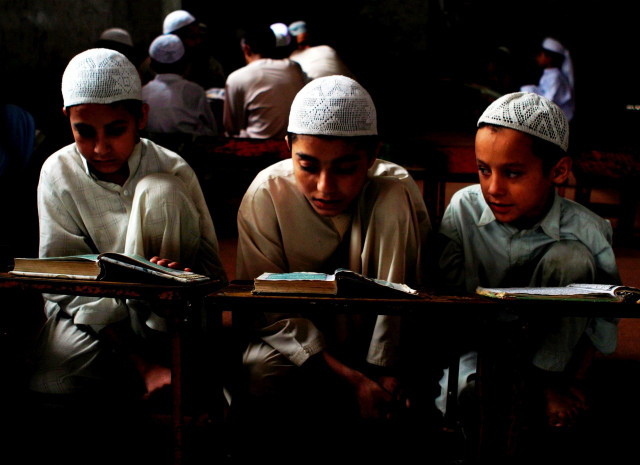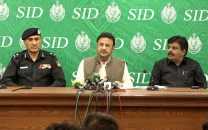Wikileaks: Saudi Arabia, UAE funded extremist networks in Pakistan
Saudi foreign ministry says it will not comment on Wikileaks report as it is "not sure about its authenticity."

Wikileaks: Saudi Arabia, UAE funded extremist networks in Pakistan
A US diplomatic cable published by WikiLeaks said financial support estimated at $100 million a year was making its way from those Gulf Arab states to an extremist recruitment network in Pakistan's Punjab province, Dawn newspaper reported.
Asked to respond to the report, Saudi foreign ministry spokesman Osama Nugali said: "Saudi Arabia issued a statement from day one that we are not going to comment on any WikiLeaks reports because Saudi Arabia is not responsible for these reports and we are not sure about their authenticity."
The November 2008 dispatch by Bryan Hunt, the then principal officer at the US consulate in Lahore, was based on discussions with local government and non-governmental sources during trips to Punjab, Pakistan's most populous province.
It said those sources claimed that financial aid from Saudi and United Arab Emirates was coming from "missionary" and"Islamic charitable" organisations ostensibly with the direct support of those countries' governments.
Saudi Arabia, the United States and Pakistan heavily supported the Afghan mujahideen against Soviet occupation troops in the 1980s. Militancy subsequently mushroomed in the region and militants moved to Pakistan's northwest tribal areas along the border with Afghanistan, seen as a global hub for militants.
Since then there has been a growing nexus between militant groups there and in Punjab. In recent years militants have been carrying out suicide bombings seemingly at will in Pakistan, despite military offensives against their strongholds.
Children sent to training camps
But militancy is deeply rooted in Pakistan. In order to eradicate it, analysts say, the government must improve economic conditions to prevent militants from recruiting young men disillusioned with the state.
The network in Punjab reportedly exploited worsening poverty to indoctrinate children and ultimately send them to training camps, said the cable.
Saudi Arabia is seen as funding some of Pakistan's hardline religious seminaries, or madrassas, which churn out young men eager for "holy war", posing a threat to the stability of the region.
"At these madrassas, children are denied contact with the outside world and taught sectarian extremism, hatred for non-Muslims, and anti-Western/anti-Pakistan government philosophy," said the cable.
It described how "families with multiple children" and"severe financial difficulties" were being exploited and recruited, Dawn reported.
"The path following recruitment depends upon the age of the child involved. Younger children (between 8 and 12) seem to be favoured," said the cable.
Teachers in seminaries would assess the inclination of children "to engage in violence and acceptance of jihadi culture".
"The initial success of establishing madrassas and mosques in these areas led to subsequent annual "donations" to these same clerics, originating in Saudi Arabia and the United Arab Emirates," the cable stated.



















COMMENTS
Comments are moderated and generally will be posted if they are on-topic and not abusive.
For more information, please see our Comments FAQ